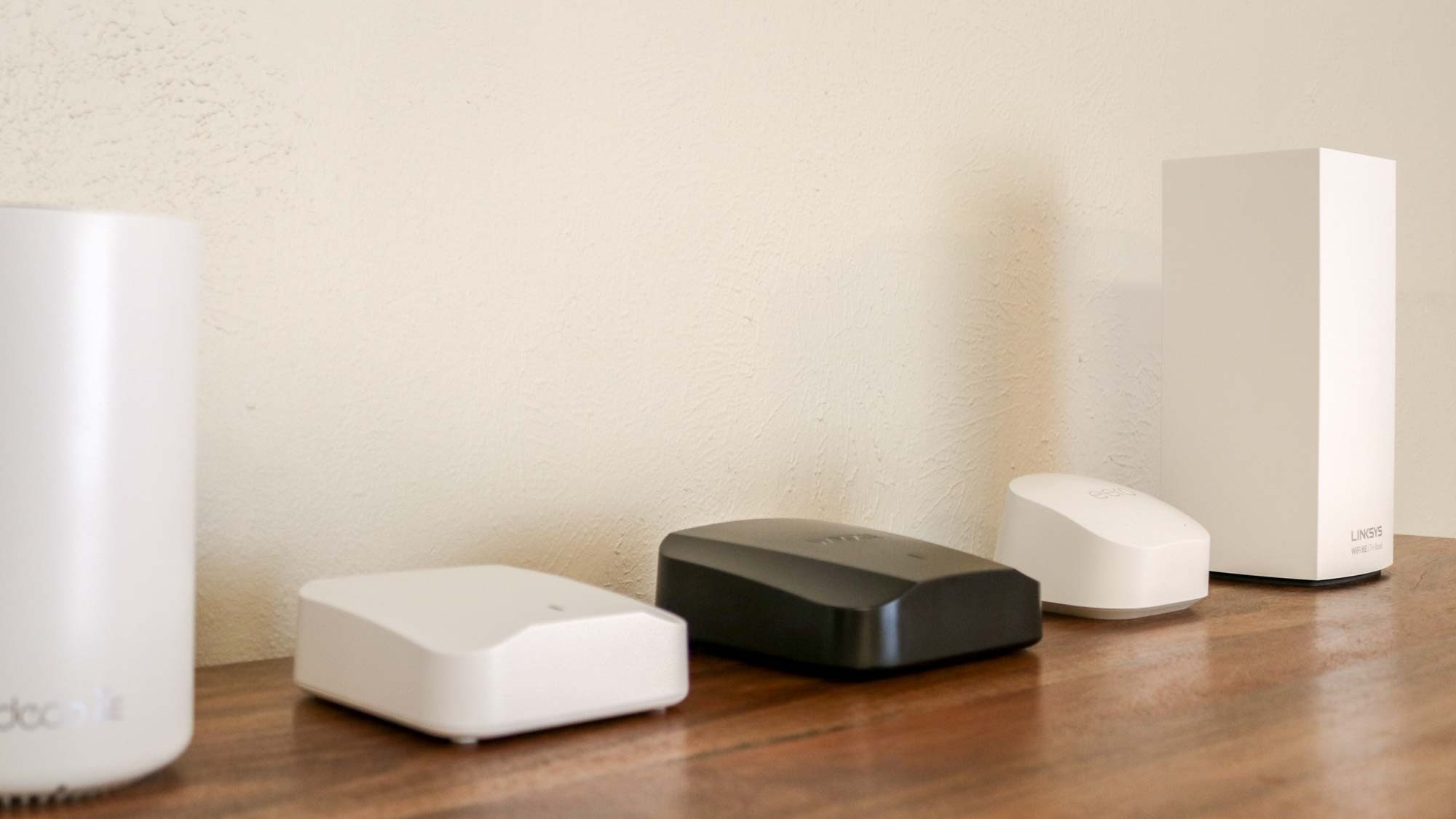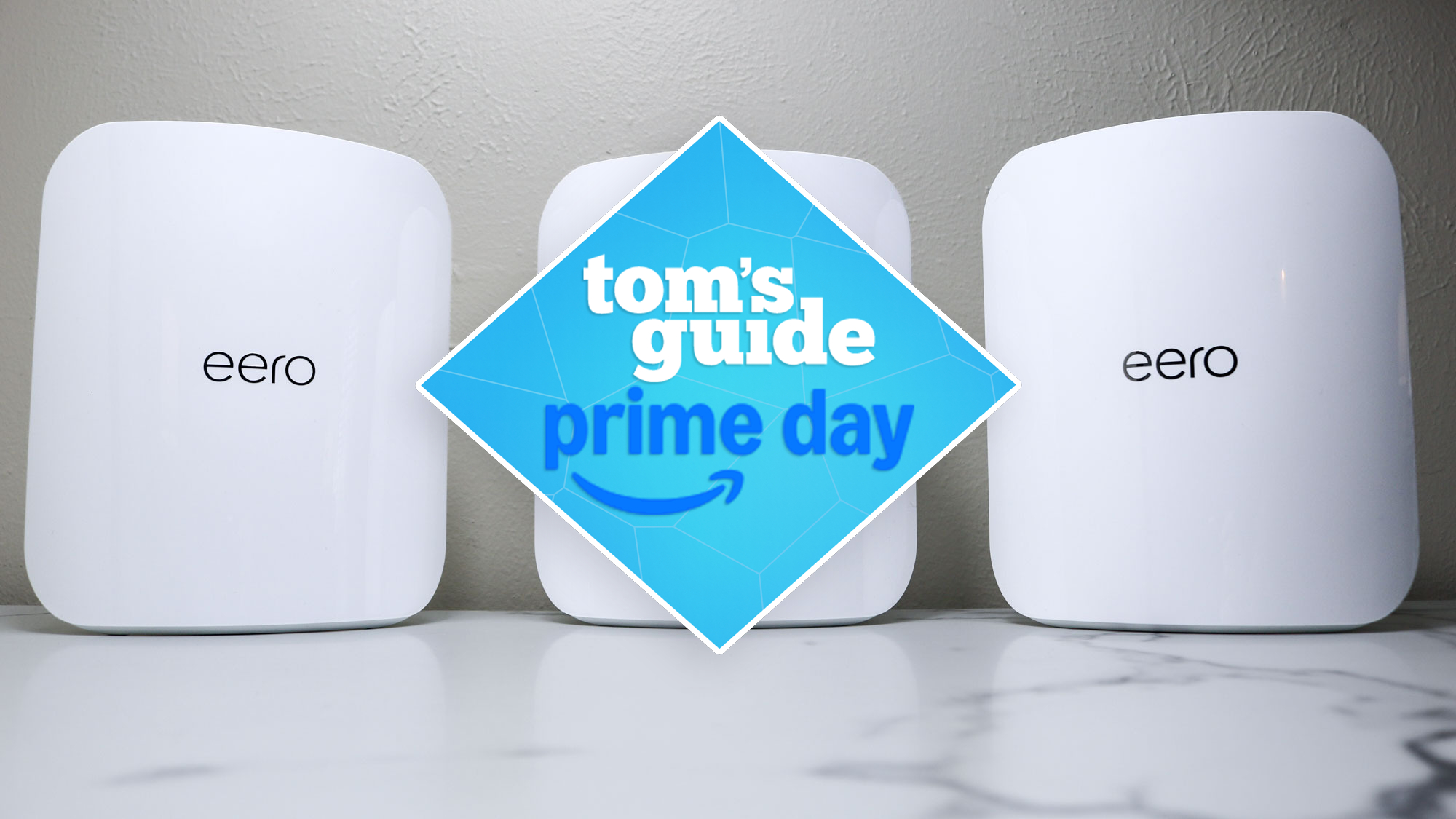If you’re tired of Wi-Fi dead zones as you move throughout your home, one of the best mesh Wi-Fi systems is exactly what you’re looking for and thanks to Amazon Prime Day, you can save up to hundreds of dollars off our favorite models. There are already plenty of great mesh router deals available right now and more will likely be added throughout the week.
So far, you can save $500 off the eero Max 7 or $150 off the TP-Link Deco BE63 and both of these mesh Wi-Fi systems come in a three-pack to ensure you’ll have whole-home connectivity in even the largest houses.
Likewise, by purchasing your own router, you won’t have to pay monthly equipment rental fees to your Internet Service Provider, especially when you pair any of these mesh kits with one of the best cable modems.
These are just the best deals I’ve seen so far and I’ll be adding even more as Amazon’s massive sales event continues. For now, here are the best Prime Day-worthy deals on mesh Wi-Fi systems and mesh routers that you won’t want to miss.
Quick links
- MSI Roamii BE Lite (two-pack): was $299 now $201 @ Amazon
- TP-Link Deco XE75 Pro (three-pack): was $399 now $249 @ Amazon
- Amazon eero Pro 6E (three-pack): was $549 now $349 @ Amazon
- Asus ZenWiFi ET8 (three-pack): was $479 now $402 @ Amazon
- Asus ROG Rapture GT (two-pack): was $479 now $414 @ Amazon
- TP-Link Deco BE63 (three-pack): was $599 now $449 @ Amazon
- Netgear Orbi 770 (three-pack): was $899 now $736 @ Amazon
- Asus ZenWiFi BT8 (three-pack): was $849 now $799 @ Amazon
- Amazon eero Max 7 (three-pack): was $1,699 now $1,189 @ Amazon
Mesh Wi-Fi deals
What you need to know before buying a mesh router?

Unlike one of the best Wi-Fi routers, mesh routers or a mesh Wi-Fi system as they’re also referred to are comprised of multiple devices you place throughout your home. This way, even as you move from room to room, your smartphone, tablet or laptop doesn’t disconnect. Instead, your internet connection starts at the main unit which serves as your router and then gets handed off to the satellites you have set up in other rooms.
If you live in a small home or apartment, a two-pack might be all you need. However, if you live in a larger home or one with a unique layout, then a three-pack might be the better choice. It’s worth noting that you can always buy another satellite later on if you find that your current setup doesn’t offer the coverage you need. So if you get a two-pack now and still have some Wi-Fi dead zones, you can just add another satellite later for additional coverage.
One big difference between traditional routers and mesh routers involves the number of free Ethernet ports you have around back. Most traditional routers have four Ethernet ports while some mesh ones might only have two. Depending on the number of wired devices you plan on connecting, you might want to consider a mesh Wi-Fi system with more ports. However, you can always buy a network switch to easily add more ports to your mesh router.
The other thing you want to take into account is which Wi-Fi standard will best suit your needs. Wi-Fi 6 devices are typically less expensive but you don’t get access to the faster 6GHz band, just the standard 2.4 and 5GHz. Meanwhile, with Wi-Fi 6E and Wi-Fi 7 devices, these mesh kits will likely feature a tri-band design (2.4, 5 and 6GHz). However, be aware that some less expensive Wi-Fi 7 routers might only offer a dual-band (2.4 and 5GHz) design. So if you want access to the faster 6GHz band for the fastest downloads possible, pay close attention to the specifications.
For more on all things Wi-Fi, check out our guides on Wi-Fi 6 vs Wi-Fi 6E, Wi-Fi 6 vs Wi-Fi 7 and if you’re on the fence about upgrading to a mesh router, take a look at our roundup of the best Wi-Fi extenders as one of these devices might be able to solve your connectivity issues without the need to upgrade to a brand new router.
Back to Wireless Routers
![]()
.png)










 English (US) ·
English (US) ·